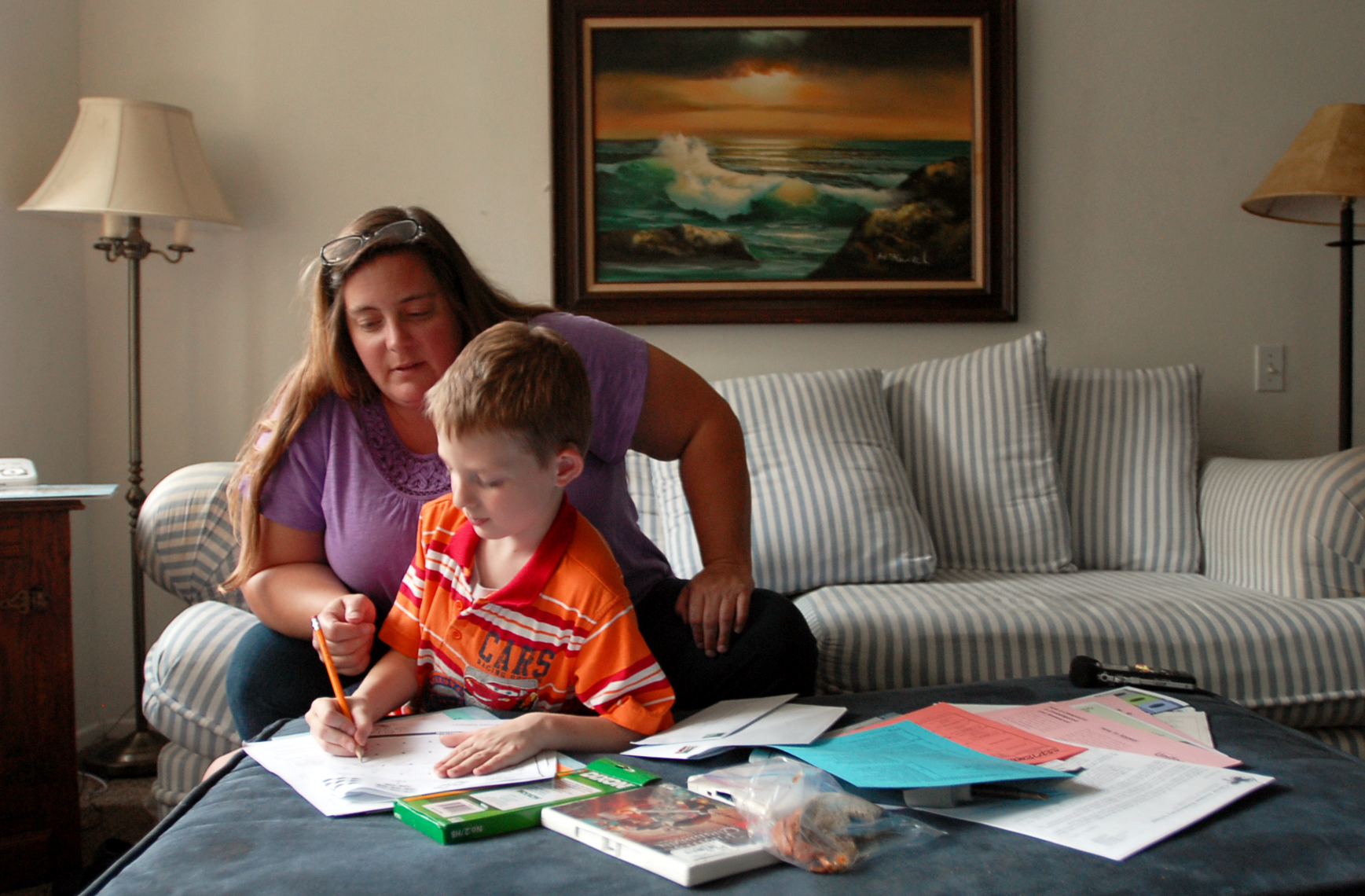Correction: The original headline contained an error. The article only focuses on one parenting student.
Kristi Robinson needed to buy diapers. She went to the bank to withdraw cash, but the teller told her she didn’t have an account anymore.
Robinson was nearing the dissolution of her marriage. It was not a happy ending, and it left her in financial straits.
She was mortified to hear the account was empty. There was no money for diapers, and no clear plan for the future.
“I was absolutely not prepared,” she said. “It was very difficult for me to deal with.”
At the time, Robinson was a stay-at-home mother. She’d dropped out of high school to support her first child, working first as an emergency medical technician and then with dialysis patients.
By now, though, her family had grown to three sons, two of whom were autistic and needed frequent medical care of their own. Her old jobs did not pay enough.
She decided to go back to school. That led her to community college, and then to UCLA, where she is a 41-year-old fifth-year sociology student applying to the UCLA School of Nursing’s master’s program.
She still struggles to pay for what she needs.
One of her sons receives medical disability payments, and Robinson’s tuition is covered by the Blue and Gold Opportunity Plan. But because she can’t afford childcare, she can’t work. She has nowhere for her kids to go unless she watches them.
“There’s months where I have to choose whether I’m paying the electric bill or the phone bill,” she said.
Robinson lives in a UCLA family housing unit in West Los Angeles. The apartment complex looks like an idealized small town, with cobblestones, community laundry buildings and picnic patches where children whine at each other and swing on jungle gyms.
Robinson’s two younger sons, now 9 and 6 years old, tumble around their living room carpet. They’re antsy from their first day back at school.
Their mother is still on summer break. She enjoys summers, because they allow her time to take the kids camping. Fall will be much more hectic.
Robinson plans her lectures around her sons’ school day so that she can pick them up on time. She can’t take classes later than 1:45 p.m.
After the boys are done around 2:30 p.m., it’s homework time, dinner time, dishes time, bath time and bed time. Robinson begins studying around 10 p.m., and she goes to bed three or four hours after that, sometimes later.
No partner means no help with her parenting responsibilities.
“If I’m sick, I still have to get up and cook dinner,” Robinson said.
According to the Bruin Resource Center, which offers services for underrepresented populations on campus, 942 of last year’s undergraduate and graduate students were parents.
Many of them are feeling the pressures of today’s tough economy, said Ronald Johnson, director of the financial aid office.
“These particular students have additional constraints on their resources,” Johnson said. Childcare, medical bills and housing can all pose challenges.
University services such as the Financial Aid Office and the Bruin Resource Center help students find personal and economic assistance, but Johnson said his office can’t always solve every student’s difficulties.
“Financial aid is not a panacea,” he said.
As Robinson’s debt accumulates, she sometimes wonders whether her education is worth the cost.
“My rent still goes up every year, but my financial aid package never goes up. Every loan that I take out is more years that I have to spend paying back,” she said.
She worries about passing the debt on to her children, and she doesn’t know if she’ll ever be able to buy a home.
Robinson said she wishes UCLA offered more resources to single parents. Halle Aten, student services coordinator at the Bruin Resource Center, said her office will consider doing so this year.
The center is also working with the UCLA Financial Aid Office to make more grant money available to students with dependents, Aten said.
Robinson hopes to be a graduate student by the time those efforts pan out. After she completes her masters degree, she’s excited to start working as a nurse and taking care of patients.
“I’m just fortunate enough that, my first time in school, I know what I want,” she said.
